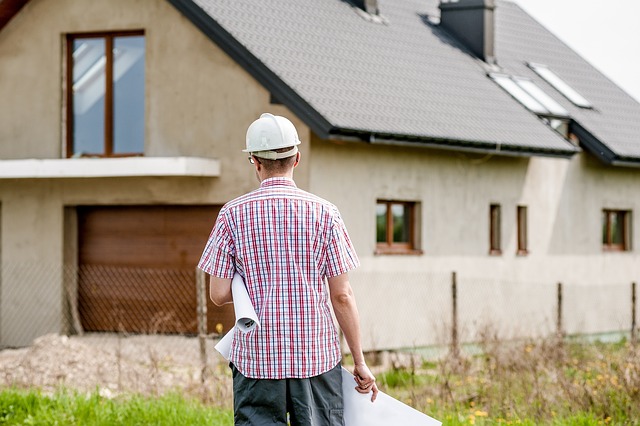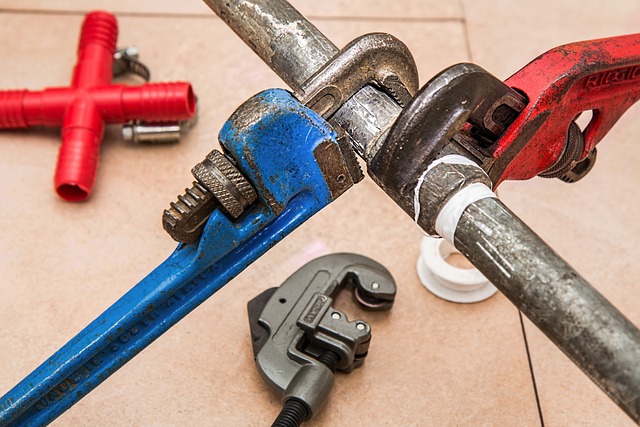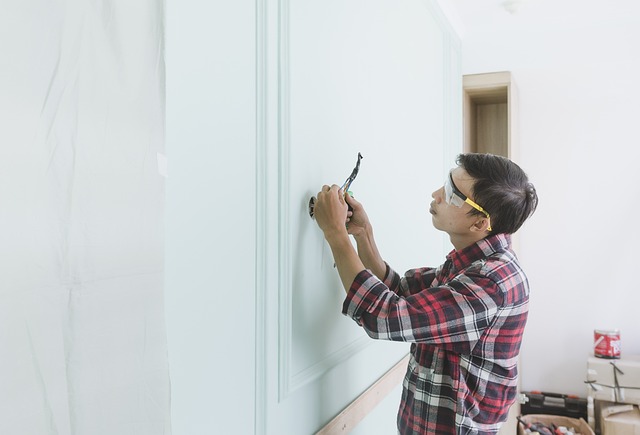To ensure your HVAC system operates efficiently and has a long service life, regular maintenance is essential. This includes replacing or cleaning air filters every quarter, as well as conducting annual professional inspections to catch potential issues early. These inspections involve checking refrigerant levels, inspecting electrical components, verifying the functionality of all moving parts, and performing necessary cleanings on coils, drain lines, and condensate pans. Adhering to a maintenance schedule aligns with Home Repair and Maintenance best practices, helping you avoid major repairs, maintain system efficiency, and achieve significant energy savings, all while keeping your home environment comfortable. Seasonal HVAC checks, such as clearing outdoor units of debris and adjusting thermostats, are also crucial for optimal performance throughout the year. By following these guidelines and documenting maintenance activities, you can effectively prevent costly issues and extend your system's lifespan.
When it comes to safeguarding your home’s comfort and efficiency, HVAC maintenance and repair stand as pivotal tasks. This article delves into the essentials of keeping your heating, ventilation, and air conditioning (HVAC) system in top shape. We’ll explore the cornerstones of efficient HVAC maintenance, offering homeowners actionable insights through a comprehensive guide to professional repair techniques. Additionally, we’ll highlight key considerations and best practices for year-round HVAC care to ensure your system operates at peak performance. Mastering these aspects not only extends your system’s lifespan but also promotes energy savings and enhances overall home comfort. Home Repair and Maintenance are integral to this process, ensuring your home remains a haven against the elements all year round.
- Understanding the Pillars of Efficient HVAC Maintenance for Homeowners
- The Step-by-Step Guide to Professional HVAC Repair Techniques
- Key Considerations and Best Practices for Maintaining Your HVAC System Year-Round
Understanding the Pillars of Efficient HVAC Maintenance for Homeowners

Regular upkeep is pivotal for ensuring the longevity and efficiency of your HVAC system, a cornerstone of home comfort and energy conservation. Homeowners must prioritize tasks such as replacing or cleaning filters, which impede airflow and affect system performance if neglected. This simple yet effective action should be performed at least every three months to maintain optimal operation. Beyond filters, homeowners should schedule annual inspections and maintenance checks by qualified professionals who can assess and service the entire HVAC system. These experts will check for refrigerant levels, inspect electrical components, and ensure that all moving parts operate smoothly. They’ll also clean coils, drain lines, and condensate pans, which are critical for maintaining efficient cooling and heating functions. By adhering to these maintenance practices, homeowners can prevent costly repairs and keep their HVAC systems running efficiently throughout the year. Home Repair and Maintenance practices are not just about reacting to issues but also about proactive care that safeguards your home environment and contributes to energy savings.
The Step-by-Step Guide to Professional HVAC Repair Techniques

Regular maintenance is a cornerstone of effective home repair and maintenance, particularly concerning your HVAC system. A step-by-step approach to professional HVAC repair ensures that each component is thoroughly inspected and addressed. The process begins with a system evaluation, where technicians assess the overall functionality, check for any signs of wear or damage, and identify potential issues before they escalate. This includes examining filters, measuring airflow, verifying correct electric voltage and amperage on motors, checking belts for tightness and wear, and inspecting terminals, wiring, and contacts to make sure connections are clean, tight, and corrosion-free.
Upon identifying a malfunction or a component that requires replacement, technicians adhere to industry best practices to perform the necessary repair work. This entails sourcing genuine parts from reputable suppliers, ensuring compatibility and longevity. The repair work is executed with precision, using specialized tools designed for HVAC systems. After repairs are completed, the system is tested to confirm that it operates safely and efficiently, adhering to the manufacturer’s specifications. Post-repair maintenance routines may also be recommended to prolong the lifespan of the system and maintain optimal performance, which is a key aspect of home repair and maintenance. This might include scheduling regular service checks, cleaning ducts, or adjusting thermostat settings as needed. By following this meticulous step-by-step guide, professionals guarantee that HVAC repairs are performed correctly, ensuring your home’s comfort and energy efficiency.
Key Considerations and Best Practices for Maintaining Your HVAC System Year-Round

Regular upkeep of your HVAC system is integral for optimal performance, energy efficiency, and longevity. Homeowners should adhere to a seasonal maintenance schedule that includes inspecting and cleaning or replacing air filters, ensuring that outdoor units are free from debris, and verifying that thermostat settings accurately reflect the desired temperature. During the cooling season, it’s crucial to check for refrigerant leaks and assess the functionality of fans and compressors. In the heating season, attention should shift to checking heat exchangers for cracks, ensuring the gas connections are tight and leak-free, and examining the system’s electrical components. Home Repair and Maintenance best practices dictate that a professional HVAC technician conduct these tasks annually. They can provide a thorough inspection, identify potential issues before they escalate, and offer recommendations for improvements. By following these seasonal maintenance tips and employing expert services when necessary, homeowners can prevent costly repairs down the line and maintain a comfortable living environment year-round. Regular upkeep also includes ensuring that the system’s components are clean and well-maintained, which can enhance efficiency and extend the lifespan of your HVAC system. It’s wise to keep records of maintenance activities and service dates to track the health and performance of your HVAC system over time.
Effective HVAC maintenance and repair are pivotal aspects of home upkeep, ensuring year-round comfort and energy efficiency. By adhering to the outlined best practices for maintaining your HVAC system, homeowners can prevent costly repairs and prolong their system’s lifespan. The comprehensive guide provided demystifies professional HVAC repair techniques, empowering homeowners with the knowledge to address issues promptly or recognize when expert assistance is necessary. Incorporating these strategies into your routine maintenance schedule will not only optimize your system’s performance but also contribute to significant energy savings. Home Repair and Maintenance are integral to sustaining a well-functioning HVAC system, and with the right approach, you can ensure your home environment remains stable and healthy throughout the seasons.
